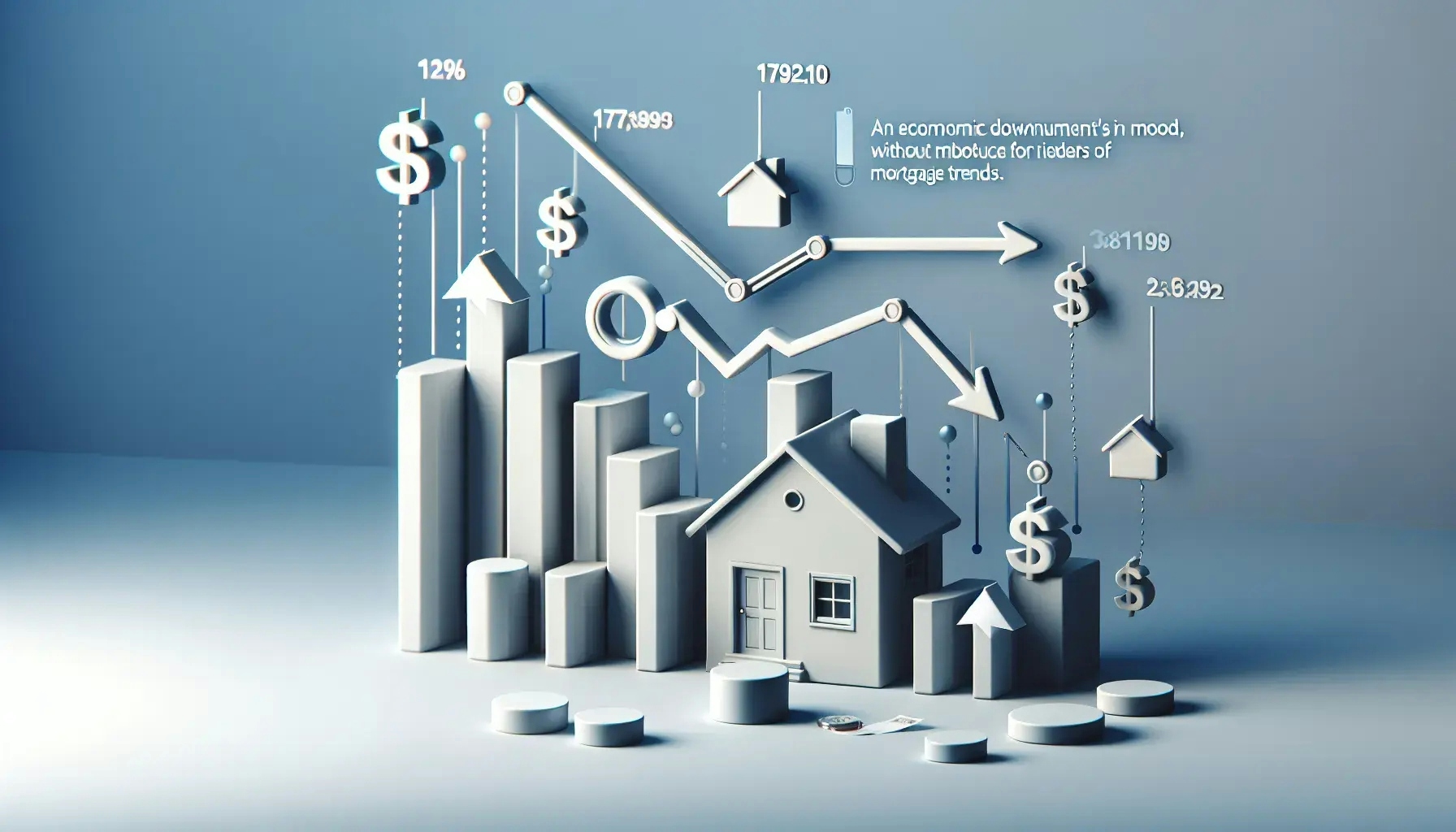In the ever-fluctuating world of finance, economic downturns play a significant role in shaping mortgage trends. This blog post aims to dissect the intricate relationship between these two phenomena. We will delve into how economic recessions influence mortgage rates, borrowing patterns, and the real estate market at large. By understanding these dynamics, we can better navigate the financial landscape during challenging economic times.
The Interplay of Economic Downturns and Mortgage Rates
Economic downturns often lead to a decrease in mortgage rates. This trend is primarily due to central banks' efforts to stimulate the economy by lowering interest rates. When the economy is in a slump, central banks like the Federal Reserve in the United States or the Bank of England in the UK, often reduce interest rates to encourage borrowing and spending.
This reduction in interest rates directly impacts mortgage rates. Lower mortgage rates make it less expensive for consumers to borrow money to buy homes. This trend can lead to an increase in home buying, which can help stimulate the economy.
However, while lower mortgage rates can stimulate home buying, they can also lead to increased borrowing. This increased borrowing can lead to a rise in household debt, which can exacerbate economic downturns. Therefore, while lower mortgage rates can help stimulate the economy, they can also lead to increased financial risk for households.
Borrowing Patterns During Economic Downturns
Economic downturns can significantly influence borrowing patterns. During these times, consumers often become more cautious about taking on new debt. This caution can lead to a decrease in mortgage borrowing, even when mortgage rates are low.
However, this trend can vary depending on the severity of the economic downturn. During severe recessions, consumers may be more likely to default on their mortgages, leading to an increase in foreclosures. This increase in foreclosures can further depress the housing market, leading to a vicious cycle of economic decline.
On the other hand, during less severe economic downturns, consumers may take advantage of lower mortgage rates to refinance their homes. This refinancing can lead to lower monthly payments, which can help households manage their finances during challenging economic times.
Impact on the Real Estate Market
Economic downturns can have a profound impact on the real estate market. During these times, home prices often decline, making it more affordable for consumers to buy homes. However, this affordability can be offset by the increased difficulty in obtaining a mortgage.
During economic downturns, lenders often tighten their lending standards, making it more difficult for consumers to qualify for mortgages. This tightening can lead to a decrease in home buying, which can further depress home prices.
However, this trend can vary depending on the local real estate market. In areas with strong job markets and stable economies, home prices may be more resilient during economic downturns. In contrast, in areas with weaker job markets and less stable economies, home prices may be more susceptible to declines during economic downturns.
Long-term Effects of Economic Downturns on Mortgage Trends
The effects of economic downturns on mortgage trends can be long-lasting. After a recession, it can take years for the economy to recover fully. During this recovery period, mortgage rates may remain low, and borrowing patterns may continue to be influenced by the economic downturn.
In the long term, economic downturns can lead to changes in the way consumers and lenders approach mortgages. Consumers may become more cautious about taking on mortgage debt, and lenders may become more stringent in their lending standards. These changes can lead to a more conservative approach to mortgages, which can help prevent future economic downturns.
Navigating Mortgage Trends During Economic Downturns
Understanding the impact of economic downturns on mortgage trends can help consumers navigate the financial landscape during challenging economic times. By understanding these dynamics, consumers can make informed decisions about whether to buy a home, refinance their mortgage, or wait until the economy recovers.
During economic downturns, it can be beneficial for consumers to monitor mortgage rates closely. By doing so, they can take advantage of lower rates to buy a home or refinance their mortgage. However, consumers should also be aware of the risks associated with borrowing during economic downturns, including the potential for increased household debt and the risk of foreclosure.
The Future of Mortgage Trends in Economic Downturns
The future of mortgage trends in economic downturns is uncertain. However, by understanding the dynamics of economic downturns and mortgage trends, we can better prepare for future economic challenges.
In the future, we may see more innovative mortgage products designed to help consumers navigate economic downturns. These products could include mortgages with flexible payment options or mortgages designed to help consumers manage their debt during economic downturns.
At the same time, we may also see changes in the way lenders approach mortgages during economic downturns. Lenders may become more cautious in their lending practices, leading to more stringent lending standards. These changes could help prevent future economic downturns by reducing the risk of mortgage defaults.
Wrapping Up: Economic Downturns and Their Impact on Mortgage Trends
Economic downturns and mortgage trends are intricately linked. Understanding this relationship can help consumers make informed decisions about mortgages during challenging economic times. As we navigate the uncertain future, staying informed about these trends will be crucial. By doing so, we can better prepare for economic downturns and their impact on mortgage trends.

